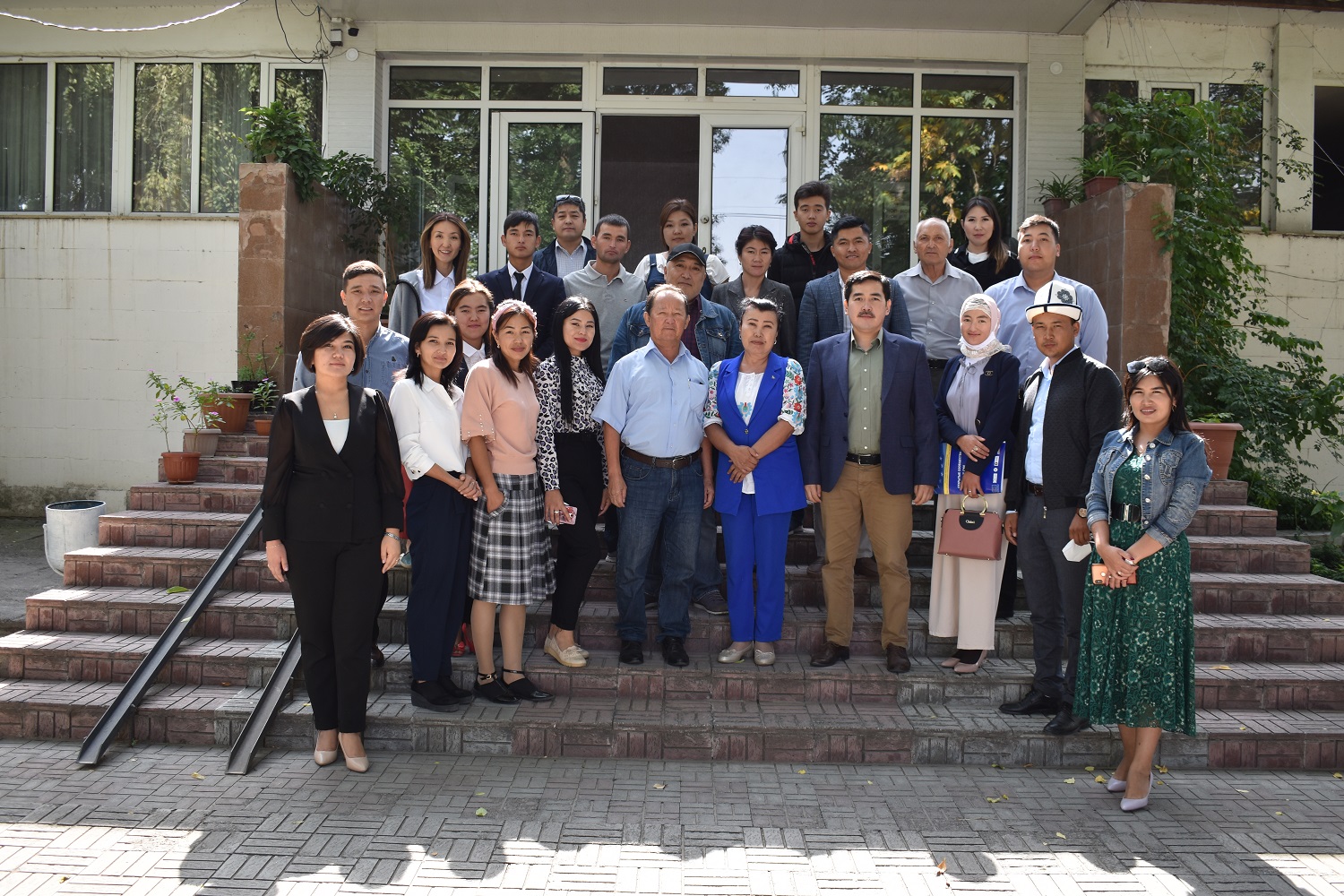Working title of the project “Open communities – open media”
Brief description:
The project supported promotion of freedoms and protection of human rights through the formation and maintenance of a free information space, freedom of speech and expression in Kyrgyzstan.
It promoted:
- free expression of various opinions on problems in society and public policy through increasing the media literacy of public councils at local and national levels
- fulfilment of the right of access to information and to the activities of accountable state bodies and institutions through a targeted media programme
- improvement of inter-sectoral dialogue promoting free exchange of ideas, opinions, and information to allow members of society to form their own opinions on issues of public importance
Success stories placed on EUD YouTube channel:
Key activities:
The project started with an assessment and analysis of the capacity gaps/needs assessment of target groups - right holders and duty-bearers – central and local authorities.
Interaction of local and state bodies with the media in the context of maintaining a free information space, freedom of speech and expression in Kyrgyzstan was supported by organising public platforms in the regions, with the participation of public councils, civil society activists and government officials and journalists.
To interest and involve media experts in the project, local and national competitions for journalists and public councils were organised.
Live broadcasts with the participation of the Ombudsman, legal specialists and other experts were organised with the aim that appeals of citizens on infringement upon their rights and injustice could be promptly responded and legal advice provided.
A country-wide needs-based training series for target groups was offered, 8 mini-grants to Public Councils working in partnership with media partners provided, training manuals, guides on the human right protection for vulnerable groups, information brochures, videos, reels and other publications produced in Kyrgyz and Russian languages.
Project results included:
- Promoted free expression of various opinions on problems in society and public policy, increased media literacy of public councils and multimedia media tools given.
- Strengthened fulfilment of the right of access to information and to the activities of accountable state bodies and institutions through a targeted media programme.
- Improved inter-sectoral dialogue promoting free exchange of ideas, opinions and information and enabling members of society to form their own opinions on issues of public importance.
- In total, the project has trained over 300 journalists and over 1000 members of public councils, NGOs and regional administrations.
- Due to spread of COVID 19, the project team developed an emergency plan to support the state in leading and ensuring an effective, timely and coordinated response to the situation in the country. An online headquarters for the regions was launched (composed of representatives of the project, republican and regional newspapers, TV and other news agencies of the country, bloggers, representatives of local government bodies, civil society representatives, civic activists, and members of small community councils), keeping the public informed of the latest events, news and the situation in the regions. Furthermore, the headquarter supported older people asking for humanitarian aid, processed their appeals to government bodies and social fund, and provided legal support to returning migrants.
Duration: 01/11/2019 – 31/12/2021 (26 months)
Location/s: Kyrgyzstan (country-wide)
Implementing Partners: Resource Center for Elderly (Bishkek, Kyrgyzstan), Generation 21 (Bishkek, Kyrgyzstan), Gustav-Stresemann-Institut (Bonn, Germany) and Pro NGO! e. V. (Koeln, Germany)
For further information please refer to
https://www.facebook.com/rce.kg/
https://www.facebook.com/923324101176608/posts/1624115887764089

